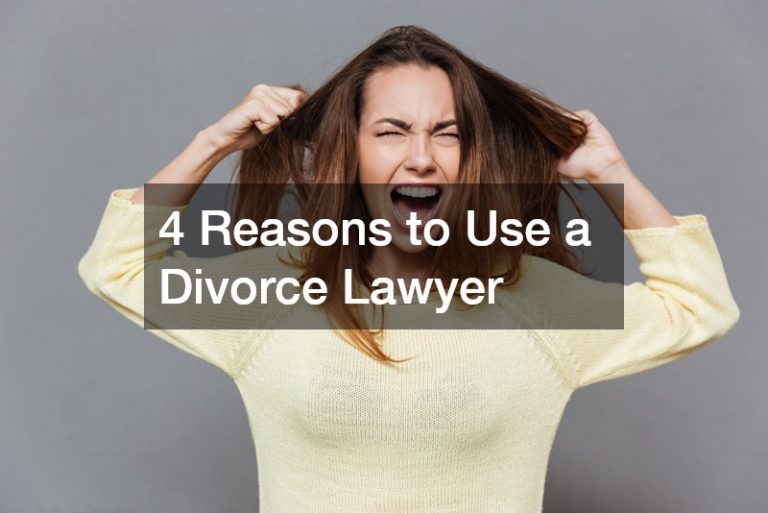
Marriage is a complex journey filled with high points, low moments, and constant change. For many people, the thought of divorce can be both terrifying and liberating. “Should I get a divorce?” isn’t just a fleeting question—it can signal deep emotional turmoil. Before making a life-altering decision, it’s important to pause and reflect.
This article guides married individuals through 10 honest questions to ask before deciding whether divorce is the right path. Each question includes thoughtful insights, practical considerations, and emotional factors that help you make a more informed choice.
1. Have We Made Real Efforts to Improve Our Relationship?
When you find yourself wondering, “Should I get a divorce?” asking how much effort you’ve both put into improving your relationship is crucial. Most troubled marriages don’t fall apart overnight—they decline gradually due to unresolved issues. Reflect on whether you’ve:
- Engaged in meaningful communication about your needs and concerns
- Turned to couples counseling or trusted mentors for guidance
- Tried tools such as relationship books or workshops
Consider this:
- Did both of you agree that things needed to change? It’s hard to repair a marriage if only one party sees the problem.
- Have you seen progress? Relationships can take time, but if months pass with the same pain points intact, deeper issues may be at play.
Pro Tip: Even a few sessions with a licensed marriage counselor can provide new strategies and a clearer picture of what’s possible.
2. Am I Confusing Temporary Unhappiness with the Need for Divorce?
Marriage sees natural ups and downs. Stress from work, health issues, or extended family can weigh heavily on a relationship. But temporary unhappiness doesn’t always mean that divorce is inevitable.
Key differences to examine:
- Temporary vs. Chronic: Are bad feelings a response to specific external stressors, or are they part of a persistent pattern?
- Duration: Have you been unhappy for a few weeks, or for years?
- Intensity: Are you upset occasionally, or feeling emotionally numb?
Questions to ask:
- Is my current unhappiness based on recent events, like a job loss or a family crisis?
- Have there been distinct cycles of distress and relief?
- Do happy moments still exist, even if they feel smaller now?
Takeaway: If happiness still intermittently shows up, it may be worth addressing stressors rather than jumping to divorce.
3. Is There Still Trust and Respect Between Us?

Trust and respect are the foundation of marriage. Without them, most other issues—communication, intimacy, long-term planning—become incredibly difficult to repair.
Trust:
- Have there been betrayals that still sting (e.g., infidelity, lies, secrecy)?
- Do you now question each other’s motives or integrity?
Respect:
- Do you feel heard, valued, and treated like an equal partner?
- Is there contempt, name-calling, or devaluation?
When trust is shattered, it’s possible to heal, but it often requires significant time and professional support.
Insight: One relationship expert suggests that if either partner has “lost respect,” especially combined with distrust, divorce becomes more likely to be on the table.
4. Are We Handling Conflict Constructively—or Destructively?
Every couple argues. But how you fight matters—especially when considering divorce.
Destructive conflict looks like:
- Yelling, insults, or name‑calling
- Silent treatments or passive‑aggressive behaviors
- Escalation over minor disagreements
Constructive conflict involves:
- Listening actively, without interrupting
- Expressing feelings using “I” statements (“I feel…”)
- Working toward mutual solutions, not trying to win
Action step: Observe your most recent argument. Could you identify any patterns you’d like to change? If your default behavior is adversarial, divorce might look easier, but it could be the wrong answer.
5. Is Our Intimacy and Connection Still Alive?
Physical and emotional intimacy binds marriages together. When these fade, feelings of loneliness can overshadow the relationship.
Reflect on:
- Sexual connection: Are you still attracted to each other? Do you initiate physical touch?
- Emotional closeness: Do you share disappointments, hopes, or vulnerabilities?
- Fun and caregiving: Do you still enjoy activities together? Do you support each other through hard times?
Feeling “just roommates” is a red flag. Yet distance may stem from stress, depression, or life transitions, and not necessarily the death knell of marriage.
Tip: Try to reconnect with small efforts: a date night, hand-holding, or quiet conversation before bed.
6. Are We Ideally Equipped to Navigate This Problem?
Every relationship has its challenges. But sometimes the core issue is mismatched values or goals, like overall life direction, financial priorities, or parenting philosophy.
Consider:
- Do you have compatible worldviews about spending vs. saving, work vs. lifestyle, and family growth?
- Can you flexibly adapt to each other’s differing needs?
- Have you made compromises that satisfy both of you?
When mismatches persist in key areas like lifestyle, life goals, or essential values, divorce often becomes a serious consideration.
Question to ponder: How would our lives differ if one person’s priorities completely changed, say, switching careers or moving countries?
7. Will Staying Together Be Healthier for Me—and Our Children?
If you have kids, the decision becomes exponentially more complicated. Staying together “for the kids” doesn’t always mean it’s healthier for them—or for you.
Factors to weigh:
- Are they seeing constant fighting or emotional withdrawal?
- Would separation reduce tension at home?
- How would co‑parenting logistics affect their well‑being?
While divorce can be traumatic, growing up in a single-parent, stable home with mutual respect may be better than living in a hostile two-parent environment.
8. How Would Divorce Affect My Finances—and Yours?
Financial concerns can delay or complicate divorce, but they’re part of any smart, long-term decision.
Areas to examine:
- Living standards: Can either spouse afford a separate household? How big would the lifestyle shift be?
- Income and assets: Are there work letters, pensions, alimony, or joint-debt considerations?
- Legal fees: What roughly would legal costs run through?
- Long-term projections: How does each spouse’s earning potential contribute?
A neutral financial planner or lawyer can help quantify the impact. Understanding what comes later can reduce fear and reveal whether staying together truly serves both of you.
9. Am I Staying for the Right Reasons—or Out of Fear?
Sometimes couples stay married for reasons that obscure the real issue. Gently evaluate your motivations to ensure clarity.
Common motives:
- Fear of change: Scared of being alone, starting over, or societal judgment
- One-sided loyalty: Staying to protect partner’s feelings, ego, social status
- Habit and routine: Staying because it’s easier than change
Ask yourself:
- Do you have examples of wanting positive change that go beyond “just being afraid”?
- Are you making choices for yourself, not just to avoid discomfort?
- Are commitments based on obligation or love?
10. Have I Asked “Should I Get a Divorce?” From a Place of Power—Not Panic?
Finally, timing matters. Are you asking this while in the middle of an emotional upheaval? Were you triggered, hurt, depressed, or overwhelmed?
Consider:
- Did the decision process begin in a calm, clear place—or in the aftermath of an explosive fight?
- Have you taken time and space—alone or with a counselor—to explore the question?
- Is there a vision of what life would look like post-divorce? Is it fear-based or clarity-based?
Clarity often emerges through journaling, therapy, talking with trusted mentors, or reframing the situation after some mental distance.
Tip: Try giving yourself six months to work through questions 1–9 before making any major decision.
Recap: Quick Reference Table
| Question | Purpose |
| 1. Made efforts? | Establish whether you’ve genuinely tried |
| 2. Temporary vs. chronic? | Differentiate a crisis from ongoing issues |
| 3. Trust & respect? | Foundation of a healthy marriage |
| 4. Conflict style? | Are you constructive or destructive? |
| 5. Intimacy/connection? | Emotional and physical bonding |
| 6. Values/compatibility? | Core alignment on life direction |
| 7. Health for the family? | Well‑being for all involved |
| 8. Financial readiness? | Financial fallout and contingency |
| 9. Reasons for staying? | Clearly defined vs. fear-based |
| 10. Emotional clarity? | Decision made from calm clarity |
Additional Insights
Should I Get a Divorce If We’ve Already Tried Counseling?
If counseling hasn’t helped, don’t assume it won’t work, especially if:
- You only did a few sessions
- You didn’t fully engage or follow through on the homework
- You didn’t attend with the same willingness
Trying again with a different, more experienced therapist—or a longer commitment—can unlock unseen shifts. If multiple long-term paths with a professional have been exhausted, it may indicate a deeper belief pattern limiting your marriage.
Should I Get a Divorce for the Kids’ Sake—or Stay Together?
Experts often say children benefit from stability more than an intact marriage. But “stability” isn’t just the number of parents under the same roof—it’s the emotional climate. Constant conflict or emotional disengagement can be more damaging than divorce. When the environment improves post-divorce, children often thrive emotionally and academically.
Should I Get a Divorce If My Partner Is Narcissistic?
In cases involving narcissism or emotional abuse, solutions like counseling may not be enough—or even safe. Narcissism typically resists change because the partner may blame you for issues. Lack of empathy or ongoing manipulation can be valid reasons to step away, but be advised to pursue safety steps, legal guidance, and self-care before beginning any separation process.
Should I Get a Divorce After Infidelity?
Infidelity shatters trust and often forms the turning point in many marriages. Still, it’s not an automatic deal-breaker. According to therapists:
- Timing matters: recovery is more possible if both partners commit soon after
- Genuine repentance and transparency are needed
- Rebuilding takes time, is deliberate, and may require thorough therapy
If your spouse takes responsibility, commits to change, and attends professional help—but trust still seems hollow—divorce may be a way to reclaim self-worth and security.
Approaching the Decision: Making a Realistic Plan

- Journal or list honest feelings and insights for each of the 10 questions. Keeping the keyword “should I get a divorce” in the back of your mind can help keep your intention clear.
- Seek third-party support: therapist, pastor, mentor, or trusted couples. Aim for insight, not persuasion.
- Set a realistic timeline—say 3–6 months—to work through changes, communication patterns, and trust rebuild.
- Check in on progress periodically. Has conflict style improved? Do you feel more connected? Are key stressors managed differently?
- Plan for both scenarios: map out financials, living options, shared parenting, and emotional flexibility depending on your outcome.
- Build a support network—friends, family, professionals who will help you navigate.
When Divorce Becomes a Good Option
While we hope most readers can reconcile or improve, divorce becomes a healthier choice when:
- Trust is irreparably broken (e.g., narcissistic abuse, ongoing cheating)
- You’ve made substantial efforts over time (questions 1–4)
- Safety concerns exist (emotional or physical abuse)
- Staying feels more like a sacrifice of self than a partnership
- Vision for life post-divorce feels more honest and hopeful than cohabitation
Conclusion
Asking “Should I get a divorce?” can feel like opening a Pandora’s box of emotion, fear, and uncertainty. But clarity and peace often come from asking the hard questions, like the 10 honest reflections in this article. Each step is designed to uncover whether struggles are transient or terminal, repairable or irreparable.
Remember: every marriage is unique. Even within the same couple, different issues may carry different weights. Prioritize honesty, seek support, and give yourself permission to act in alignment with your values and safety. In the end, whether you stay together or separate, the most important thing is to build a life rooted in respect, integrity, and authenticity.




